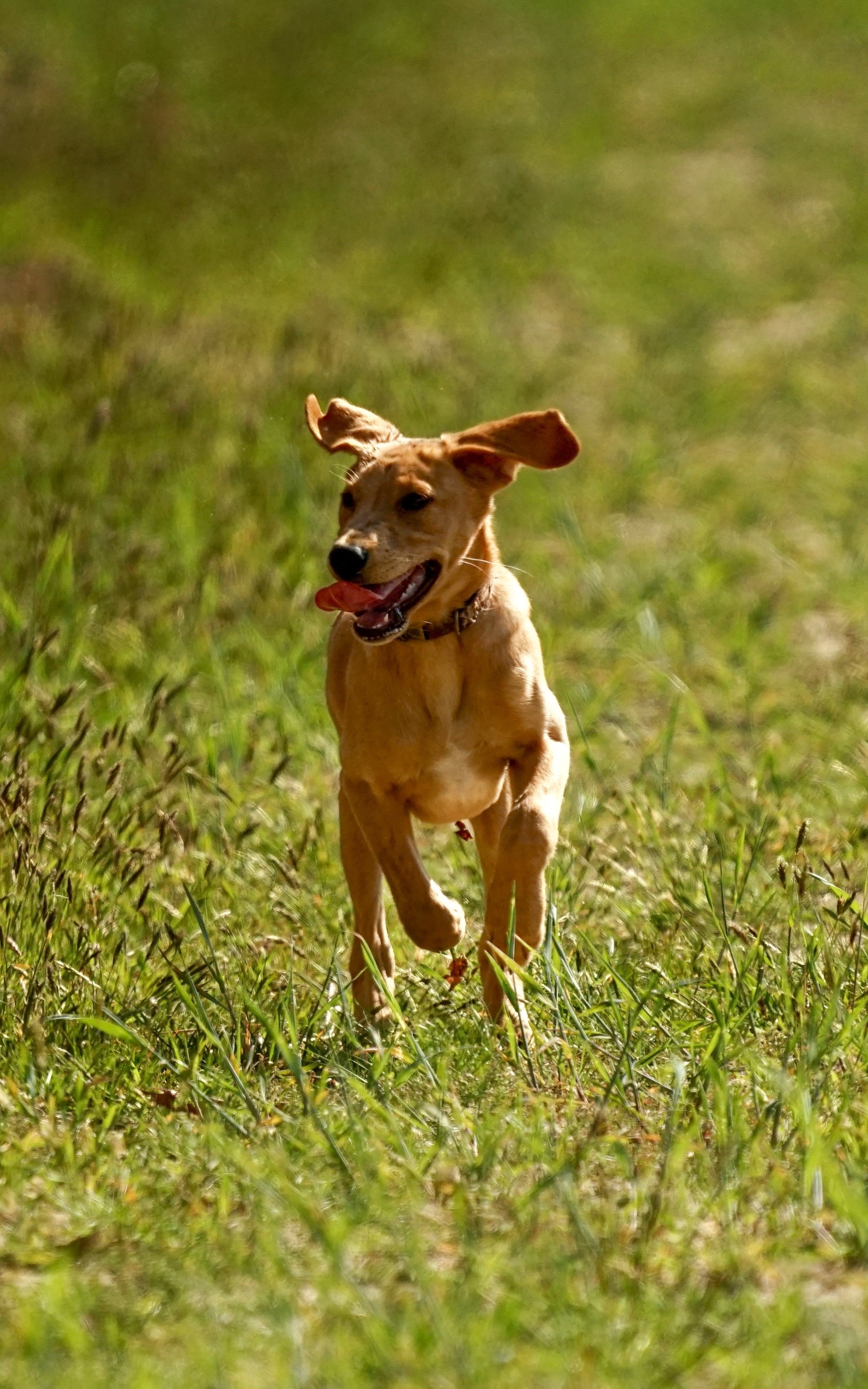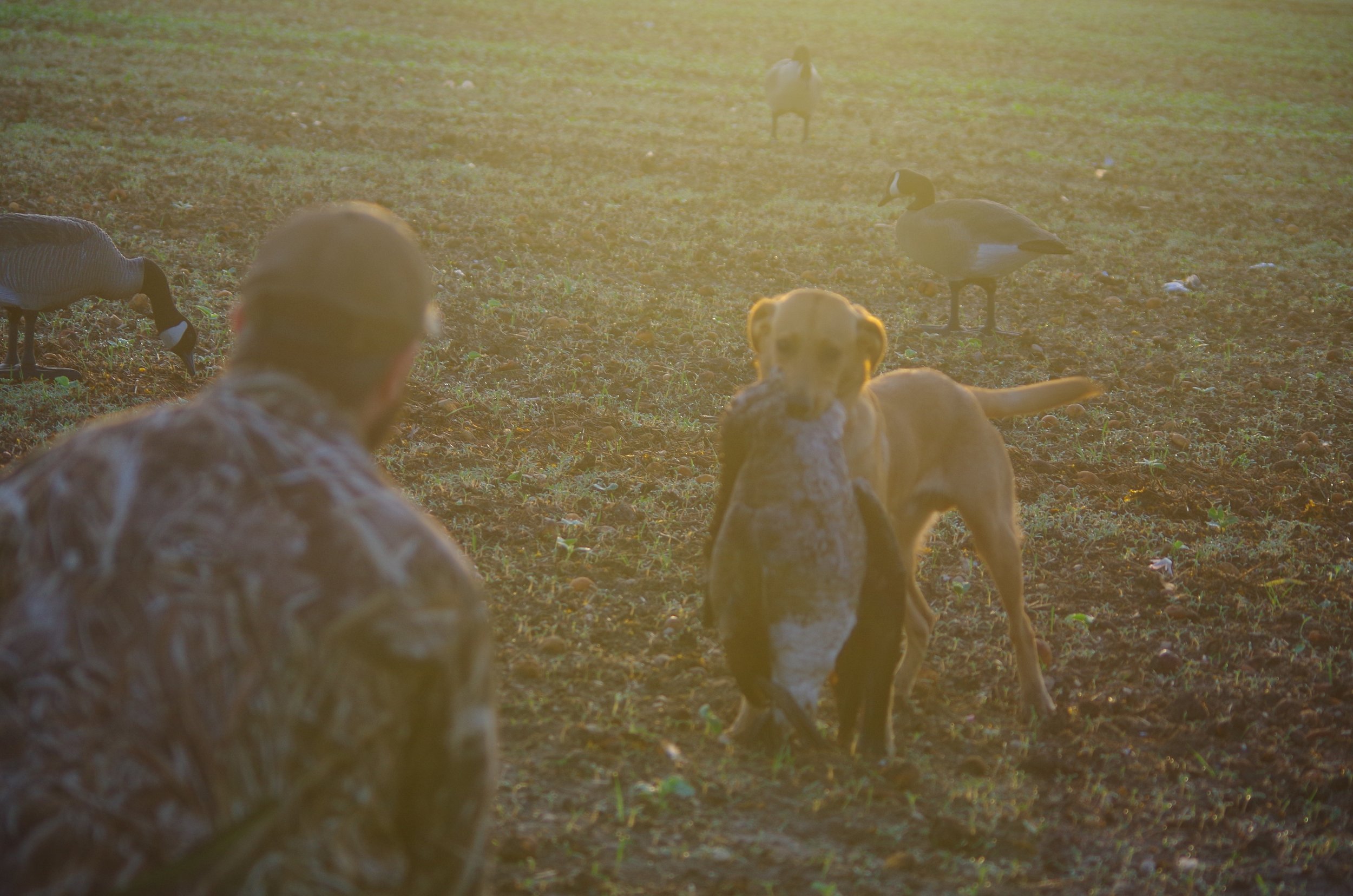Five Tips for the First Five Months
Ryan Rehsir for SPLIT REED
Waterfowlers reach a point in their careers where they want to consider the idea of purchasing their first hunting companion. It is an undeniably exciting idea to toy with. Many dream of having a sensational hunting partner, one that will never bail at 0’dark thirty when it is time to hop in the truck and head out. Oftentimes, we wind up hunting with friends or acquaintances that have these four-legged rock stars but never jump at the opportunity of being said guy to show up, dog in tow. As a recent first-time owner myself, I am in the process of training my now eight-month-old fox red lab, Boone.
Since bringing him home, I have experienced a myriad of feelings; excitement above all, but also fear of failure, bouts of validation and success followed by training sessions compromised in frustration, joy just having his companionship in the home, doubt in our abilities as a team squashed by breakthrough moments of synchronicity, the list goes on. I am here to not only tell you to expect it, but also to offer a few pieces of mind and advice to navigate it. In the first few months of us both trying to figure out one another and delving into his waterfowl training, both new territory for us, five things stood out that I am compelled to share with those of you out there who are looking to step into the same shoes.
Care but do not coddle. I realized early on, part of letting my young dog learn was for me to become comfortable watching him make his own mistakes and not negatively reprimand him at such an early age. This may have been through socialization with other people and dogs alike, new environments we explored, and so on.
Maybe he got “put in his place” by another dog, fell out of the kayak not sitting still, and got stung by a bee after my insistence to leave it alone; things that are naturally going to happen. I had to let go of feeling as though these were preventable events I could have intervened with, accept chalking them up as things that were just going to happen, and be okay with that. Not everything your pup learns is something you directly teach them; sometimes it is the consequences of their actions that will shape behavior. Puppies are not flowers in need of protection. Let them explore. Step in to correct egregious mistakes, but do not fret over the happy accidents.
Be unafraid to ask for guidance. I have always been an advocate of networking, regardless of the medium. Training Boone has been no different. I opted to not go the retriever club route, sending him off to a trainer, or any of that primarily because I had a network of friends with years of experience I could count on for advice. I was fortunate too that many of them are in varying stages of training; from puppies of their own to seasoned gun dogs. Do not feel apprehensive about asking for advice in forums or on social media either. More often, people genuinely want to see you and your pup succeed. With that being said, be willing to take constructive criticism and suggestions, and apply them to your training. Expect to get a multitude of answers that ultimately wind up with the same result. It is your job to decide which is best for you and your dog, and you know your dog better than anyone else. Choose accordingly.
Unapologetically, do what you think is best for you and your pup. I think it is easy for a first-time dog owner to be overwhelmed by the suite of training programs available. I found myself unsure of the exact route I wanted to go. Do I follow the breeder, this YouTube channel, this particular book, or subscribe to that online program? Do I want to clicker train or not, collar condition or not, do I eventually want to hunt-test him? I simply came to the conclusion I accrued a lot of great information I wanted to incorporate, as well as some training tactics that did not jive with my personality and how I wanted to train my dog. I went rogue. I developed my own program for him and me based on what I amassed. Having that flexibility and independence has made training much more enjoyable for me. I personally feel more ‘in tune’ with Boone due to the fact we are doing our own thing and I think it validates our successes considering his training was built from a blank slate.
Log your training sessions; better yet record them if possible! One of the best products I invested a measly $20 in was a small tripod to hold my phone. It alleviated having to try and multitask holding a phone, focusing on the dog, bumpers, treats, a clicker, and what have you. Recording sessions allowed me to recognize errors I was making that would result in him not quite doing what I expected considering how impressionable young dogs are. The little nuances in verbal cues or body language between us (more often than not on my end) would leave me puzzled and sometimes frustrated. Having a video to review, I could either refer back to a book I was consulting, a friend or a YouTube video and take corrective action for the next session. It is also a great reinforcer when things click and you can enjoy watching it!
There is no time like the present. One unintentional fault I think we have as new dog owners are the excitement and anticipation for our retriever’s first hunting experience. Who can blame any of us? It is why we got a dog in the first place, right? It is now September and at eight months old writing this, Boone has now experienced a couple of his first resident goose hunts and has exceeded my expectations for his age.
My final piece of advice is to keep yourself and your expectations grounded in where you and your dog are, not where you expect to be several months away. Oftentimes I caught myself subconsciously worrying if “he would be ready in time” for the fall. We may have had an ‘off’ training day and I would sabotage what progress we have made together. I would have to regroup and reset, and that is okay. Stay present in your daily training sessions and create your own consistency. Do not get fixated on some false expectation of where you feel you should be based on others’ experiences. Every session and every day is a day to improve towards you and your pup’s goals. Every dog is different too. Time is always on your side provided you make the conscious effort to accept that and use it as a pathway to success rather than a barrier.




